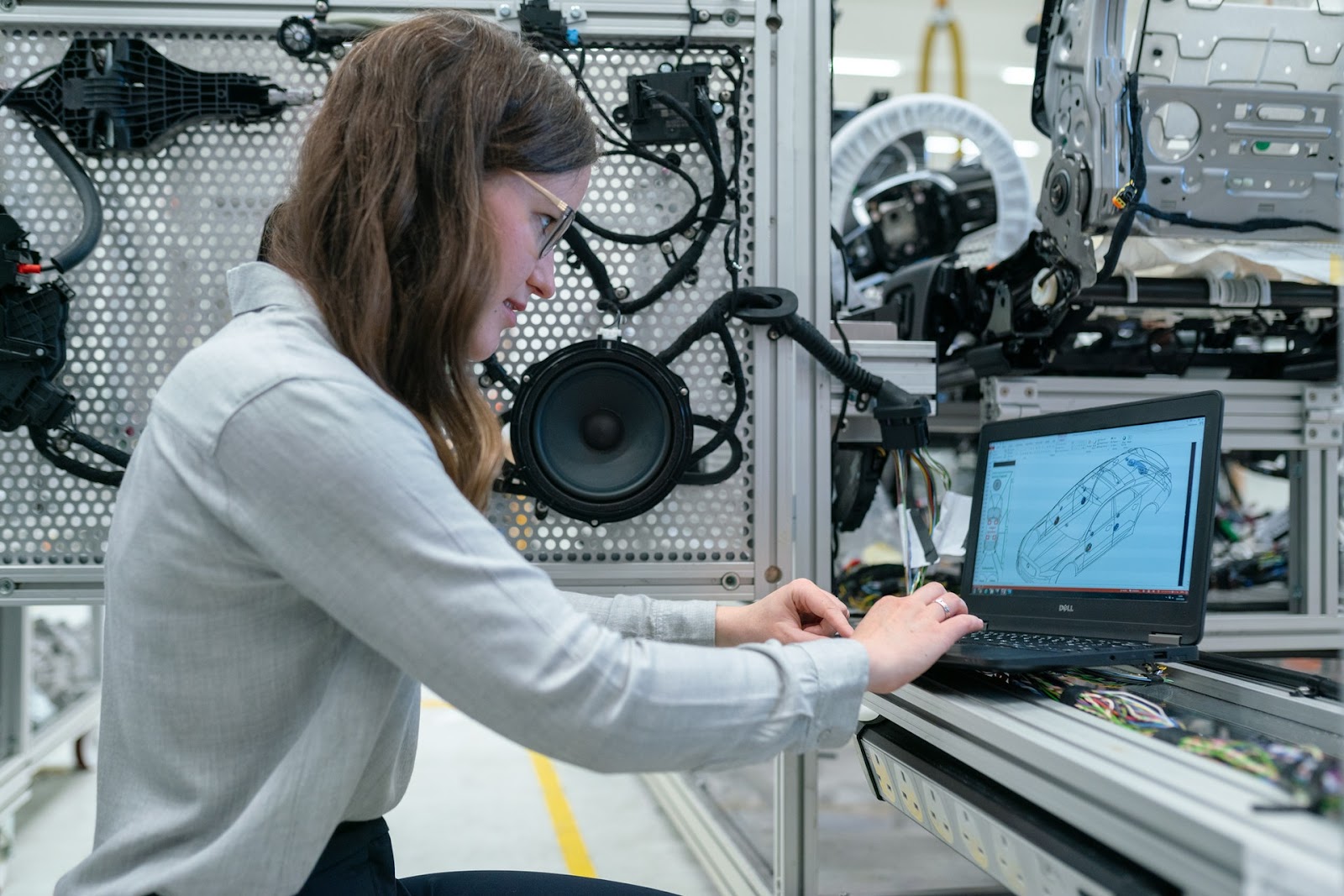Research and development efforts in the robotics industry have, in recent years, yielded tremendous results. Robots are now smarter, more flexible, and adaptable to more industries than ever before. As such, more businesses and manufacturers are now keen to incorporate them into their operations and reap their benefits.

Source: https://www.pinterest.com/pin/571112796496437526/
It is thus safe to say that, as a collective, the workplace is headed for disruption. The application of robots will undoubtedly occasion a host of changes that may take some getting used to. It is no wonder that the labor market is growing increasingly anxious at the possibility of such a transition.
Let us take a look at some of the ways that robots may impact the workplace.
Improved Service Delivery
The invention of machines was born of the acknowledgment that there are limitations to human labor. The concept of robotics is based on the same principle. They can be designed to perform tasks to a precision that human beings are inherently incapable of. The idea is not so much to replace human labor but to explore the possibility of the enhanced capabilities that robots could deliver.
Robotic surgery presents an apt example of such improved service delivery. Laparoscopic surgery has been proven to have fewer complications, shorter recovery times, and minimal scarring in comparison to conventional surgery. Does this mean surgeons are now redundant? Not at all, in this case, robots are just a means of providing better service to their patients.
Better Staff Safety
On-the-job safety, especially in manufacturing, has a long complicated history. Factory workers, in particular, record some of the highest cancer diagnoses and long-term health complications from their jobs. These effects stem from exposure to harsh chemicals, poor air quality in factories, long work shifts, and strenuous tasks. Other professions are also not exempt as they face their own kinds of risks.
Labor unions have, and rightfully so, been lobbying for better worker safety for years now. Robots may provide just the solution to this perennial problem by taking over risky tasks in the workplace. For instance, bomb disposal robots provide a safe way for law enforcement to handle explosives without putting their lives on the line. It is a positive impact that has been found to improve staff morale and job satisfaction.
Room For Innovation

Source:
https://www.pexels.com/photo/female-engineer-working-in-workshop-3862630/
Repetitive time-consuming assignments limit opportunities for employees to innovate or advance in their careers. As a result, if you are an entrepreneur, your firm may be losing out on the innovative talents of staff who are stuck in such roles. Whereas, if you invested in robots to take over those mundane tasks such employees may have room to do more productive work.
Robots also bring an unparalleled level of dexterity to tasks. As their uptake increases, developers and technicians may be able to create more complex innovations. If, for example, you are a gadget developer there are pick and place robots for sale that may greatly enhance your work. Specialized models assemble microparts with ease and inimitable precision. There are large models too that can handle bigger payloads.
Suffice to say, robots may break open the floodgates of creativity in the workplace.
A Shift in Career Trends
The introduction of new technology has historically caused a shift in career paths. As robots take on functional tasks such as packaging and machine tending, those careers will become irrelevant. Human labor may likely become more focused on creative areas and service provision. For such sectors, emotional intelligence, perception of human nuances, and needs will always be an irreplaceable necessity.
Administrative roles may equally face some interesting job description changes. Consider, for example, the human resources department. While it would ordinarily handle interpersonal conflicts, it may now additionally have to address human-robot interactions. Staff training for robot collaboration and operation will likely be inevitable as well.
The role of tech departments may equally become more prominent for workplaces that incorporate robots. More so for sectors where robots are client-facing. This is because the functioning of the robot will determine customer experience which is a factor that directly affects profitability.
Job Loss

Source:
https://unsplash.com/photos/PZhEmDr5gDc
The unbearable truth is, more people will begin to lose their jobs on grounds of redundancy. From a productivity perspective, one robot can easily handle the workload of multiple employees and work at a faster rate. In terms of profitability, the one-off cost of buying a robot is also cheaper than the recurring expense of paying salaries and wages. For any business, these factors provide a winning argument to transition to a robot-driven production line.
The unskilled workforce bears the highest risk of facing redundancies in their jobs. This is especially due to the new methods of programming robots using machine learning tools. They make it possible for robots to be trained to perform a wider range of tasks than was previously possible.
Nevertheless, even with the integration of artificial intelligence, robots are far off from being able to adequately replace human labor. The situation may not be as dire as it has been painted to appear.
Conclusion
Evidently, robots are a mixed bag of fortunes. However, if you carefully think about it, so is almost every other technological invention. Perhaps the bigger question worth asking would be whether the positive impacts of robots outweigh the downsides. If they do, then the pains of the transition to a workplace with robots in it may be worth it after all.
0 Comment(s)